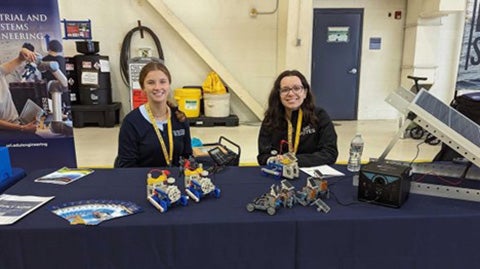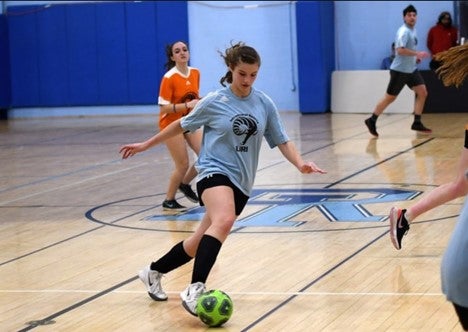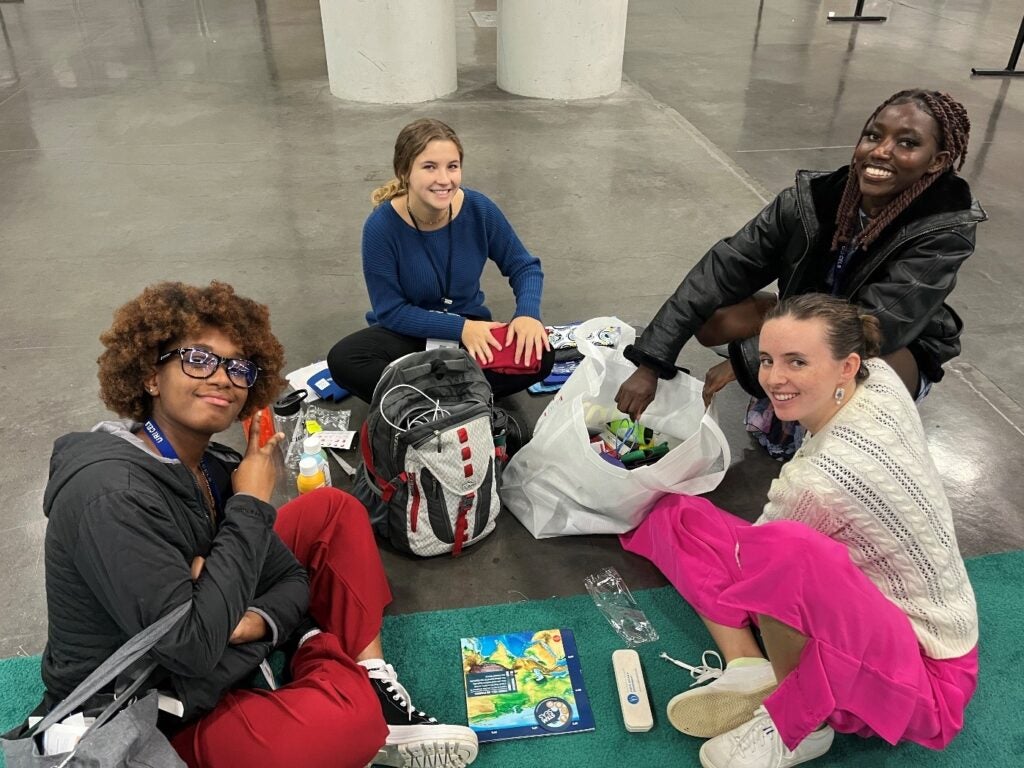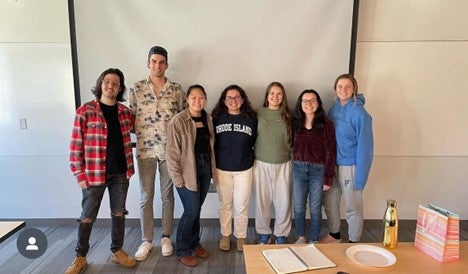Graduate with passion for sustainability discovers deeper depths of major
Malinda Fry always enjoyed math, science and problem-solving, so it wasn’t a surprise when she followed in her mother’s footsteps to pursue engineering. As a stage manager in high school drama, she found that when it all ran smoothly, she felt gratified and liked seeing the efficiency, which led her to choose industrial and systems engineering as her major.
In the middle of a pandemic, it was an easy decision to stay to close to home and attend University of Rhode Island, the same university as both of her parents, but the fact it offered a robust engineering program and multiple opportunities to also join organizations of special interest to her made an easy decision even easier.

“There are a lot of resources on campus available to help you. As long as you read your emails and talk to your professors about potential opportunities, you are definitely set up for success,” said Fry. She especially loved the fact that her major is a small group and says having a close group of friends in the same classes was fun and good for study groups.

Throughout her time as an undergraduate, she also played intramural soccer and volleyball and made dean’s list every semester. She believes balancing academics with personal well-being was key to long-term success.
Freshman year, Fry joined URI’s Multicultural Scholar Program, a program for students majoring or minoring in Sustainable Agriculture and Food Systems to help lead students into a career in SAFS. Being in this program led her to join the 2020 Leadership Institute semester-long program. This program incorporated large-group virtual workshops, small-group sessions, and online resources. For her freshman year internship, she worked with professor John Taylor at the URI Agronomy Farm, where she gained research and agricultural experience working with other undergraduate and graduate students. Through the same program, she became a The Society for Advancement of Chicanos and Native Americans in Science member in 2022 and attended the conferences in 2022 and 2023 with other STEM majors on campus.
“There are a lot of resources on campus available to help you. As long as you read your emails and talk to your professors about potential opportunities, you are definitely set up for success,” said Fry.
During junior year, she joined the Native American Student Organization and the Institute of Industrial and System Engineers.

“I did not fully understand what ISE was until my junior year, when classes became more focused on my major. I had always thought it was based on process efficiency, but it is on a deeper level than that. From the raw materials to the end of life of a product, each interaction a person has with the part or machine used to manufacture it, and the environmental impacts; how each element functions and interacts with every human, machine, and environment; all of that can be optimized and improved to become an efficient system,” said Fry.

In the summer of her junior year, she joined URI VOTES to gain research experience. “I liked researching because it allowed me to use what I had been learning in school in a hands-on manner,” said Fry. Using SIMIO software for simulation modeling and SketchUp for location layout to help election officials allowed her to see all the skills she learned come to life.
Furthering her research skills, her senior capstone project aimed to be an example of implementing radio frequency identification tags in a manufacturing facility, such as a storage warehouse, to locate inventory. This technology employs electromagnetic fields for wireless data transfer between RFID tags and readers. The tags contain a chip and are powered by the antenna’s electromagnetic field, enabling them to transmit stored data, such as unique identification numbers. It offers efficient wireless data transfer, enhancing various operations in diverse industries.
The project built upon previous work that successfully identified RFID tag locations in a bound environment. The previous year’s results had a 91.2% accuracy. Using experimental design throughout the semester her team was able to replicate and slightly improve upon these results, resulting in a 93% accuracy which was better than the previous year.
This project was one of ISE Professor Manbir Sodhi’s. At the same time, Electrical, Computer, and Biomedical Engineering Professor Resit Sendag and his team were working on another part of the RFID project; an app to model the live location of the RFID tag. “Effectively documenting and reporting these experiments to Professor Sendag and his team provided invaluable real-life experience. Delivering weekly updates on project progress and presenting key findings concisely honed my communication skills,” said Fry.
“I look forward to having more time here.”
Fry looks to further continue her research. She has been accepted into the master’s degree program in systems engineering and adds “I look forward to having more time here.”
